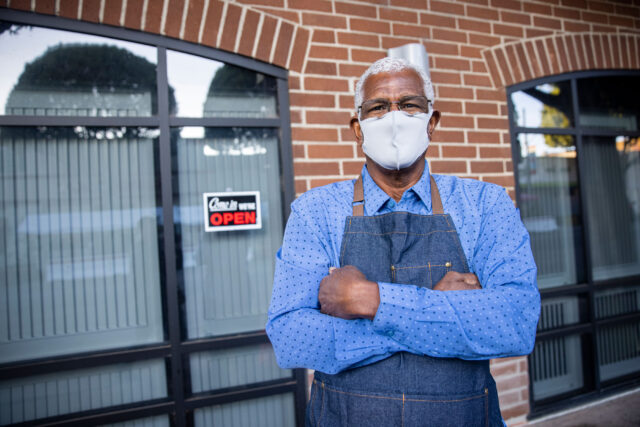“How do you make visible the invisible struggle of millions of Californians who are in poverty or one paycheck away?” That’s the question animating Michael Tubbs, founder of the nonprofit End Poverty in California (EPIC) and former mayor of Stockton. PPIC vice president and senior fellow Lande Ajose spoke with Tubbs about building an equitable, inclusive economy as we emerge from the pandemic.
Reflecting on the recovery thus far, Tubbs acknowledged the life-sustaining support that was provided by the government’s pandemic relief efforts. At the same time, he said, “The reality is there were a lot of people feeling pain before the pandemic. Those same people are feeling pain after the pandemic. And there hasn’t been anything meaningful that has bettered their position over the long term.”
Tubbs identified improving child care access and affordability, expanding the Earned Income Tax Credit, and establishing baby bonds as key actions to improve the lives of struggling Californians in the long run. In the short term, he suggested that policymakers focus on fee forgiveness and stimulus payments to help keep people afloat. He also noted that the current budget surplus provides an opportunity to experiment with pilot programs and test out which ideas are most effective.
To tackle regional disparities in COVID’s impact, Tubbs emphasized that state support needs to go beyond financial resources. He called California’s Community Economic Resilience Fund “a great first step” but argued that communities also need “[additional] capacity, technical assistance, and expertise about . . . what economic development looks like in the 21st century” to develop informed, forward-thinking recovery plans.
Part of the impetus for founding EPIC came during Tubbs’s time as a city council member and then mayor of Stockton. He came to realize that poverty was “at the core” of the city’s challenges—affecting everything from educational outcomes to violence to homelessness.
To address this root cause, Tubbs oversaw a pilot program of guaranteed basic income, the first of its kind in the country, when he was mayor. Unlike many other safety net programs, basic income allows participants to spend the money however they want. Tubbs cited research from the program’s first year showing that it improved mental health and lowered income volatility. The program even boosted full-time employment by allowing participants to overcome barriers like transportation and child care costs.
One irony of the COVID crisis is that pandemic relief efforts gave some people more agency in their work lives, contributing to the Great Resignation and an increase in union organizing. Moving forward, Tubbs wants government to take stock of what it was able to do in an emergency and consider which supports can be continued long term because “poverty and economic insecurity [are] an ongoing state of emergency.”
***
PPIC’s Speaker Series on California’s Future invites thought leaders and changemakers with diverse perspectives to participate critically, constructively, and collaboratively in public conversations. The purpose is to give Californians a better understanding of how our leaders are addressing the challenges facing our state.
PPIC is a nonpartisan, nonprofit organization. PPIC does not take or support positions on any ballot measure or on any local, state, or federal legislation, nor does it support, endorse, or oppose any political parties or candidates for public office. Any opinions expressed by event participants are theirs alone and do not necessarily reflect any position of the Public Policy Institute of California.




